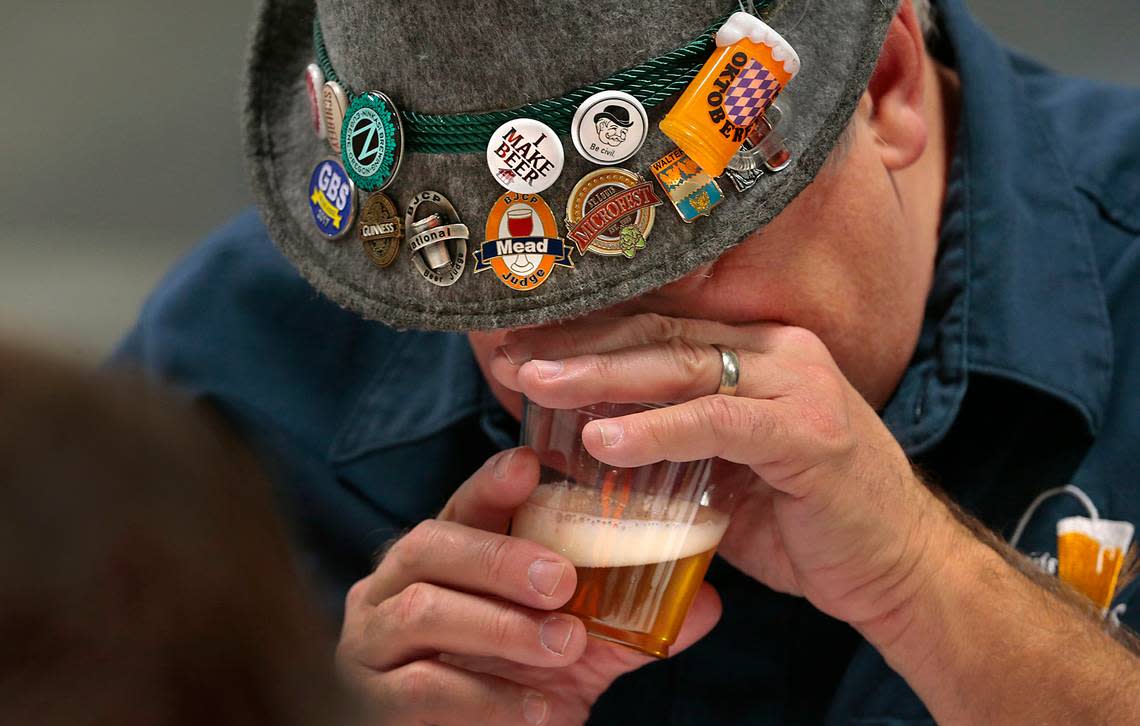Can you legally make beer, wine and hard liquor at home in NC? Here’s what to know
Beer brewing and wine making can be a fun, at-home hobby. Breweries, wine shops and other stores often sell beer-brewing and wine-making kits.
But you won’t see moonshine-making kits, and kits for other liquors, when perusing the shelves of breweries and wine shops. Why not?
We wanted to check in with legal experts to learn if there’s anything legally questionable about this common hobby.
Overall, we learned at-home brewing and wine-making is perfectly fine, as long as you’re making it purely for a fun hobby and not to sell.
“Beer and unfortified wine are less regulated than fortified wine and liquor, but they all have limits on what you can do, where you can do it, who you can give it to and how much you can possess. There are structures and regulations in place to control all that,” said Tyler J. Russell, attorney at Raleigh law firm Ward and Smith P.A.
“To generalize, you really just need to make sure it’s an activity that’s being undertaken for personal use and possession, not for an activity that bleeds into the commercial world.”
Here’s what we learned about the legality of home-brewing and distilling operations:
Is it legal to brew beer at home in NC?
Yes. It’s legal to brew malt beverages at home, a legal term that includes beer.
Malt beverages range from having 0.5% to 15% ABV (alcohol by volume), and they are typically made using barley and hops.
Is it legal to make wine at home in NC?
Yes, but wine is subject to more rules.
It is generally legal for North Carolinians to make and possess wine for personal use. But there are restrictions on the possession of certain wine within the state (especially fortified wines, which are more tightly regulated than unfortified wines).
Here’s more information on both:
1. Unfortified wine, which contains 16% or less ABV. This includes Chardonnay or Cabernet that you can find in a grocery store.
2. Fortified wine, which contains more than 16% but less than 24% ABV.
Wine is typically made by fermenting grapes or other fruits, rice or honey.
Can I legally share homemade beer, wine?
Yes, with restrictions. These restrictions include:
Only allowing people 21 years or older to possess or consume the beer and wine.
Not selling the products, not offering to sell them, not marketing them for sale.
“If lawfully made and possessed, then you can give it to of-age guests without payment or compensation on your own private property,” Russell said.
With certain types of alcohol, like liquor and fortified wine, you might not be able to lawfully bring it to places such as your workplace or a public park and consume it with people there, because you may not be allowed to legally possess those products on that property.
“Your home is typically fine, your friend’s home is fine with their permission. But there are limits on consumption and possession of alcohol in public and commercial places,” he said.
North Carolina law allows you to “make, possess and transport” wines and malt beverages for personal use, which can include giving to family or guests at organized events, such as contests.
If you want to submit home-brewed beer for a competition, you can share your product in that regard, but you cannot sell it to others without proper permits and licensure. This is because NC has a tightly regulated marketplace for alcohol.
The driving force for this regulation is consumer protection, but the regulation also helps to avoid product diversion and ensure state and federal governments collect the tax revenue they are due from any regulated business activity.

Is it legal to make liquor or moonshine in NC?
No. “There does not appear to be a statute on record in North Carolina that authorizes ‘at home’ production and distilling of liquor,” Russell said.
State law authorizes North Carolinians to make wine and malt beverages for their own use, the use of their friends and guests, or for use at organized affairs, exhibitions or competitions (all subject to ABC Commission rules and regulations).
To make “spirituous liquor,” which includes moonshine, you must obtain a permit from the NC Alcoholic Beverage Control Commission, according to state law.
With these permits, you can make, transport and sell moonshine within the state, per state law.
How is moonshine made?
Moonshine is a high-proof liquor that is usually produced illegally, according to BinWise, a liquor inventory software company.
Moonshine is typically made with corn, but it can be made from any type of fruit or grain, BinWise wrote. It can also have up to 80% ABV. (For comparison, the average bottle of beer has an ABV of 5%, according to American Addiction Centers, an organization that provides resources for individuals with alcoholism.)
Since almost any crop can be used to make it, moonshine comes in a variety of flavors, including blackberry, cherry, apple and vanilla, BinWise reported. Because moonshine is often made with “untrained hands,” it can be unsafe to drink due to excessive amounts of alcohol.
The high alcohol content in moonshine makes it useful for a variety of things, including starting a bonfire, antifreeze for vehicle engines, cleaning surfaces and treating minor cuts, says Crystal Ridge Distillery.
Charlotte Observer reporter Evan Moore contributed to this report.
Triangle Asked & Answered: What do you want to know?
Have a question about something in our community? The News & Observer’s Service Journalism team wants your questions for our Triangle Asked & Answered series. Reach out to us by filling out this form or by sending an email to ask@newsobserver.com.
Here are 8 alcohol-related laws you need to know if you’re going to drink in NC
Why can’t we buy liquor in NC grocery stores? A short history of ABC & booze laws.






